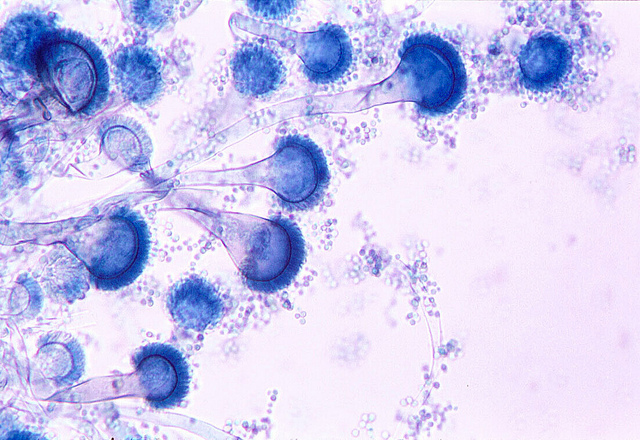Submitted by ROrritt on 3 October 2017

Researchers found that fungal spore cell-death is triggered by healthy immune cells in the lungs, partly explaining why most people don’t get fungal infections despite inhaling around 1000 fungal spores each day.
The international group of researchers describe discovering the phenomenon in a paper titled ‘Sterilizing immunity in the lung relies on targeting fungal apoptosis-like programmed cell death’, which has been published in the journal ‘Science’ on the 8th September. The study showed that, in mice, neutrophil immune cells engulfed the Aspergillus fumigatus spores, trapping them before triggering the spores own self-destruct cell mechanism.
The researchers also found a protein (AfBIR1) on the surface of A. fumigatus spores, which is thought to prolong fungal cell life. Mice exposed to spores with many instances of this protein were more likely to die from fungal infection. When the researchers used a drug to stop the production of this protein, fungal cell death was increased and infected airways began to clear.
New understanding of proteins like AfBIR1, and of the mechanism by which host immune cells trigger spore suicide, could help researchers to develop new ways to treat aspergillosis patients.
News archives
-
Title
Date


